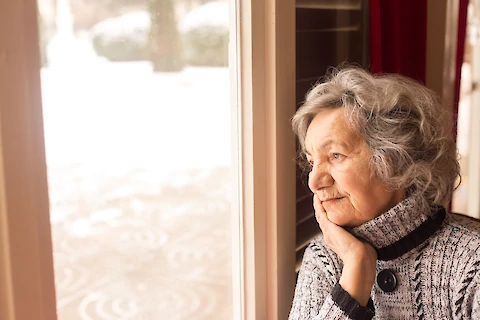
As we navigate winter's shorter, darker days, it's crucial to take proactive steps to maintain our mental well-being. This is especially pertinent for our elderly population, who may face unique challenges during these colder months. The shifting daylight hours and reduced sun exposure can significantly influence our mood, contributing to a condition known as Seasonal Affective Disorder (SAD). By planning ahead, seniors and their caregivers can manage symptoms of SAD and improve overall health and wellness this winter.
Understanding SAD
SAD is a type of depression that typically occurs during the fall and winter months when daylight hours are shorter. It is strongly linked to reduced sunlight exposure, which can disrupt our body's internal clock or circadian rhythm, leading to feelings of sadness, fatigue, and lack of motivation. For seniors who may already grapple with health issues and social isolation, the impact of SAD can be particularly profound.
Strategies for Managing Depression in Winter
Several important strategies can make it easier for caregivers and seniors to manage signs of winter depression.
Light Therapy
One effective treatment for SAD is light therapy, which involves daily exposure to bright, artificial light using light boxes. These devices mimic outdoor light and can positively affect mood by triggering the brain's production of serotonin, the 'feel-good' hormone. Light therapy has been proven beneficial for seniors who may spend more time indoors during winter, ensuring they receive much-needed light exposure despite the shorter days.
Regular Exercise
Engaging in regular physical activity is another practical strategy for managing depression. Exercise stimulates endorphin production in the brain, creating a natural mood boost. While winter weather may make outdoor workouts challenging, seniors can engage in indoor activities such as yoga, tai chi, or aerobic exercises designed for older adults. Not only does this promote physical well-being, but it also fosters a sense of routine and purpose, which can combat depressive feelings.
Healthy Eating Habits
Maintaining healthy eating habits plays an integral role in managing depression. A balanced diet enriched with vegetables, fruits, lean proteins, and whole grains can help stabilize blood sugar levels and prevent mood swings. In the darker months, seniors should also consider foods high in Vitamin D, such as eggs and oily fish, to compensate for the lack of sunlight. Nourishing the body with the right nutrients not only boosts physical health but also supports mental and emotional well-being.
Staying Connected
Social connections play a significant role in mental well-being. Feelings of loneliness and isolation can exacerbate depressive symptoms, making it crucial for seniors to stay connected with loved ones during winter. This connection can come from regular phone calls, video chats, or safely organized visits. Joining community groups or participating in socially-distant events can also provide a sense of belonging and purpose.
Seeking Professional Help
Despite employing these strategies, it's important to acknowledge when professional help may be needed. If feelings of depression persist or worsen, seniors should seek professional assistance.
Navigating winter's darker months can be challenging, particularly for seniors prone to seasonal depression. However, understanding the impact of reduced sunlight and employing strategies like light therapy, regular exercise, healthy eating, staying connected, and seeking professional help can make a significant difference.
Companionship Care and Support During Winter
At Senior Helpers Dayton, we are committed to supporting our community's seniors during every season. Our dedicated team is ready to provide assistance, resources, and compassionate care to ensure optimal mental well-being throughout the year to seniors in Centerville, Beavercreek, Oakwood, Kettering, and Huber Heights. Contact us today to learn more about how we can assist during the winter, whether you need companionship care to help improve mental health or assistance with daily self-care tasks.